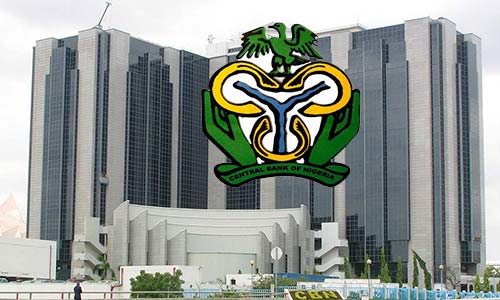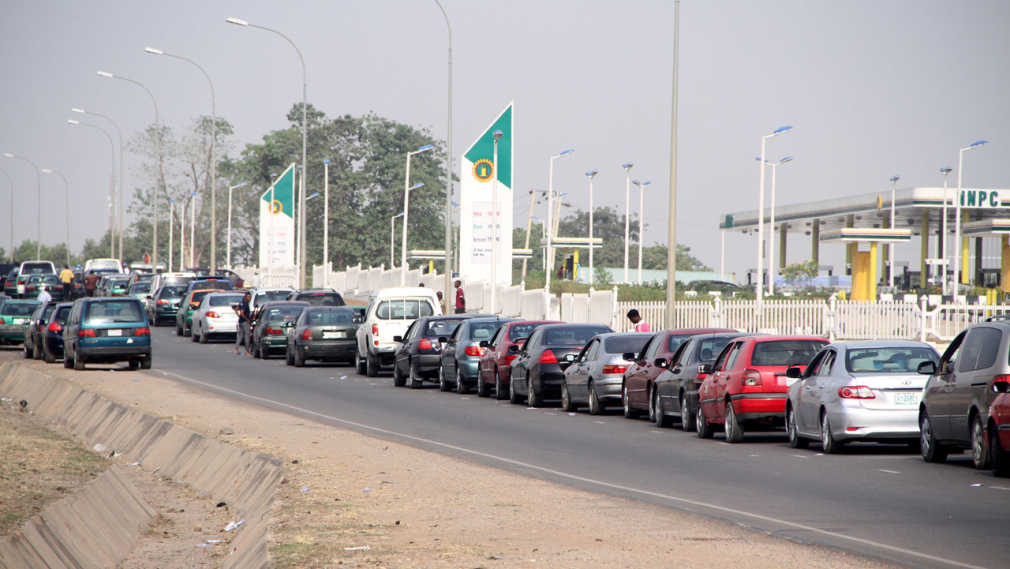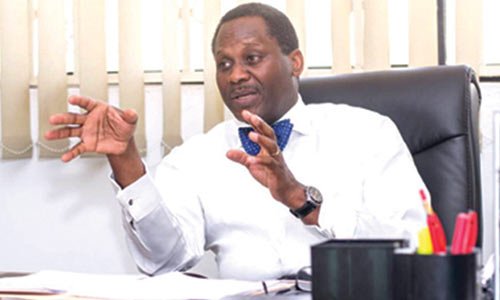Banking and Finance SECTOR INSIGHT 29/05/2022
CBN Rallies Banks To Support Nigerian Firms To Expand Forex Earnings

The Central Bank of Nigeria (CBN) has urged Nigerian banks to support indigenous companies to increase foreign exchange inflows and boost economic growth.
This is coming as the African Development Bank (AfDB) has embarked on the designing of youth entrepreneurship investment banks in 13 African countries, including Nigeria, even as it disclosed that it had obtained approval from its Board of Governors to develop a Security Index Investment Bond to address insecurity in Africa.
A CBN team on inspection of projects funded through Deposit Money Banks in Lagos advised the banks late on Friday.
It noted that the apex bank was counting on these companies to expand export earnings and achieve the goal of $200 billion in foreign exchange repatriation in three to four years.
The News Agency of Nigeria (NAN) reported that the CBN team visited the Pinnacle Oil and Gas FZE, Candel Company Ltd., Lagos Free Zone and Sana Building Systems, all in Ibeju-Lekki, Lagos State.
The Head, Legal Services Department of CBN, Mr Kofo Salam-Alada, during a visit to Candel Company Limited., called on banks to support Nigerian companies to grow production in the country.
“With what the company is doing I believe that bankers should start coming for them; it’s not just the Central Bank’s Intervention Funds, Nigerian banks should seek them to see how they can partner with them to drive it forward.
“The key thing that Nigerians must also know is that we need to support our own, not just in terms of employment generation; for the CBN that is interested in increasing foreign exchange in this country, it is something that needs to be supported,” he said.
Director, Banking Supervision Department, Haruna Mustapha, said what the company was doing was quite complementary to the apex bank’s RT200, designed to boost the non-oil sector.
“Candel stands at two critical junctures; it is a manufacturing outfit. CBN recently introduced the RT200 designed to boost the non-oil sector and what Candel is doing here is quite complementary to that policy.
“Again, it is providing the needed support to the agricultural sector, which will feed into the policy of the government to diversify the productive base of the Nigerian economy.
“Ultimately we expect to see a solid impact, especially when you consider the various value chain this business touches.
“So, we need more support for companies like Candel and if we can have them in sufficient critical mass, the future looks great for Nigeria,” Mustapha said.
Director of Development Finance, CBN, Yila Yusuf, noted that the bank, under its Commercial Agro Credit Scheme, disbursed N2 billion to Candel, adding that they were impressed with what the funds were used for.
“Candel is a company that we are aware of, we have given them N2 billion under our Commercial Agro Credit Scheme, fully paid through First Bank.
“We came here to see, essentially the manufacturing line; they have new products and we are impressed with what we have seen.
“The Central Bank will continue to support and work with them, quite a number of jobs, both direct and indirect that we have seen on the floor line,” he said.
Charles Anudu, Chairman, Candel Company Ltd., who noted that manufacturing companies suffered a lot of difficulties doing business in Nigeria, urged banks to be development-oriented as CBN.
“We suffer a lot of disadvantages manufacturing in Nigeria; our cost profile is very prohibitive. You know in Nigeria you have to generate your own power and do everything, everything is expensive.
“Yet, we are still competing against countries, exporting to Nigeria, whereas my competitors elsewhere are getting an export rebate.
“When somebody exports from China, for instance, he already makes a profit because he gets the 15 per cent paid to him or her by his government, I get no such support.
“Meanwhile, here all sorts of regulators are on our neck; the exchange rate is a bottleneck because we still have to import a lot of the materials we use, and the interest rate is prohibitive,” he said.
The team stressed the need for private sector involvement to grow and develop the economy.
AfDB Plans Youth Entrepreneurship Banks in Nigeria, 12 Others
Meanwhile, the AfDB has embarked on the designing of youth entrepreneurship investment banks in 13 African countries to create wealth in the continent.
President of the AfDB Group, Dr Akinwumi Adesina, said this at a news conference to conclude the Bank’s 2022 Annual Meetings in Accra, Ghana.
Adesina said the move, to be finalised by June, would help youths get capital and create wealth for the younger generation for the development of the continent.
“We are designing renewed financial institutions that will invest into the business of the youths and Ghana is one of the benefitting countries.
”We have 13 countries and we expect to finish that design by the end of June.
”It will create youth-based wealth for the continent,” he said.
On post-harvest losses, Adesina said the Bank had invested one billion dollars in special agro-industrial processing zones to curb food losses.
He listed some countries to benefit including Zambia, Nigeria, Ghana, Cote d’Ivoire, Mauritius, and Mozambique, among others.
“These are the new investments the bank is making to be close to the areas that the farmers are producing enabled with water, infrastructure, and logistics so that the food and agriculture processing companies can be located close to the zones.
“The processing companies in most countries are not located in the rural areas because there is no infrastructure in the rural areas
“What we are trying to do with the processing zones is to reduce the cost of doing business for the food and agriculture companies, so that they can offtake from the farmers and process them there.
“We lose too much of our food and the consequence is that we start complaining about carbon emissions, producing and not having any impact and that affects the prices of food that eventually gets to the market.
“Post-harvest losses are what I can describe as pouring water into a bucket that has holes, you have to stop the leakage but in developed countries, post-harvest losses are as a result of too much food, you can’t eat it, you throw it away but in Africa, it is not like that,” he said.
The News Agency of Nigeria (NAN) reported that Egypt will host the next Annual Meetings of the Bank.
Mr Tarel Amer, the Governor, of the Central Bank of the Arab Republic of Egypt, was appointed the new Chairperson of the AfDB Board of Governors.
The bank also disclosed it has obtained approval from its Board of Governors to develop a Security Index Investment Bond to address insecurity in Africa.
Adesina disclosed this at a news conference to wrap up the 2022 Annual Meetings of the Bank in Accra.
Adesina said security was an issue in the continent, noting that development thrived in a secured continent.
He said that the meetings discussed the support for the private sector which he said the Bank was actively involved in with the private sector equity investments.
“Development can only happen when we have security.
“Security is now part of our thinking in the AfDB because we will support the countries to address security.
“There must be a link between security, investment, growth, and development,” he said.
He said the Bank’s meetings also focused on the debt management for Africa.
“We must have sustainable, transparent debt in Africa by ensuring that the private and commercial debt of Africa is fair.
“AfDB should do more on agriculture.
“In the meetings, we talked of the African Development Fund (ADF).
“As you know, the ADF is 50, nine out of 10 most vulnerable countries of climate change are in Africa, 100 per cent of them are ADF countries,” he added.



